A Pop-Up Museum Documents the Stories of Philadelphia’s Black Women
Vashti DuBois is looking to build community and pride in underserved neighborhoods, starting with her own
/https://tf-cmsv2-smithsonianmag-media.s3.amazonaws.com/filer/24/53/2453ce97-2379-4dfa-b3e4-acc82a94f8a2/dining_room_from_below1.jpg)
Walk into the front door of Vashti DuBois' house in Philadelphia’s Germantown neighborhood and you find yourself in a living room filled with artifacts—wooden statues and lace doilies on the mantle, huge oil paintings on the walls. Go upstairs, and each of the 10 rooms is a different chapter in the story of black women in the city. The bedroom hits on themes of love and shelter (and includes voodoo dolls), and the toolshed holds horse tack and old photographs of female factory workers.
DuBois, an artist and Philadelphia native, saw a gap in the stories being told in American history about women of color. She decided to turn her home into a pop-up culture center and art exhibition, called the Colored Girls Museum. She still lives in the house, and thinks of it kind of like a bed and breakfast, as other people come through her space.
“There should be a place in the world where colored girls' history is being built and archived,” DuBois says.
In 2014, DuBois put a call out, through the nonprofit and arts communities she'd worked in, to black women in Philadelphia. She asked women, of all ages, to contribute artifacts that embodied their experience as girls—anything from coffee cups to heirloom paintings. She received a huge collection of objects, ranging from hand tools to a painting of the singer Lauryn Hill. Then she had 10 local artists each curate a room. For instance, the laundry room is a shrine to the concept of the washerwoman, a powerful concept for many of the women. “For a lot of women of color, our grandmothers took in laundry. It’s very personal, and that history was not that long ago,” she says. Many of the rooms blend history, art and social commentary. The idea was to create a collection of experiences, to show what life looked like for these girls and to draw a broader picture of what it meant to grow up as a woman of color in America.
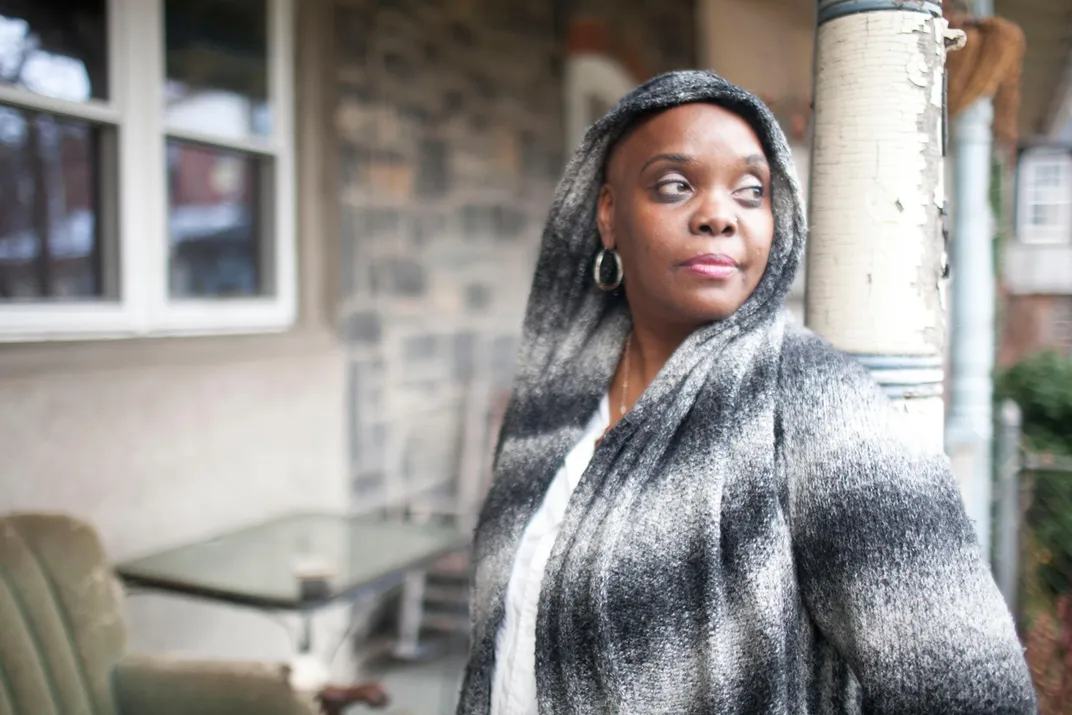
DuBois has been pushing the boundaries of art installations since she was a sophomore at Wesleyan University in the late 1970s. There, she saw her peers ignoring the arts in favor of more traditional career paths, so she curated an art show, called "Women's Work," in the Black Student Union house. “I started it as a way for women of color to come together around something generative,” she says. After college, while running arts programs at a center for adjudicated youth in Philadelphia, she saw how art was an avenue for girls to process and contextualize their decisions and experiences. The Colored Girls Museum is meant to expose people to art in a non-traditional museum venue, and to be a welcoming place.
“Houses put people at ease,” DuBois says. “We’re reimagining the museum as a sanctuary for colored girls. I want it to be a gathering space, celebrating and acknowledging, and looking closely at the things that have shaped us in the country and in the world.” The museum is a mix of traditional arts, like quilts and rag dolls, modern art that speaks to the experience of being a black woman, and heirlooms. It's a mashup of comics, murals and stained glass.
DuBois is currently a finalist in the Knight Cities Challenge, which grants a total of $5 million to civic projects focusing on three areas: attracting talented people, expanding economic opportunity and creating a culture of civic engagement. The grant would help her build out a web exhibition for those who can't visit in person, and replicate the model in other cities. Detroit and Raleigh are next.
"It's a traveling, pop-up event that can land in any city,” DuBois says. “Museums are culture’s symbolic altar. We're looking at the things that culture says is important. That’s really powerful, and we recognize that different communities are going to be able to relate in a different way."
/https://tf-cmsv2-smithsonianmag-media.s3.amazonaws.com/accounts/headshot/DSC_0196_2.JPG)
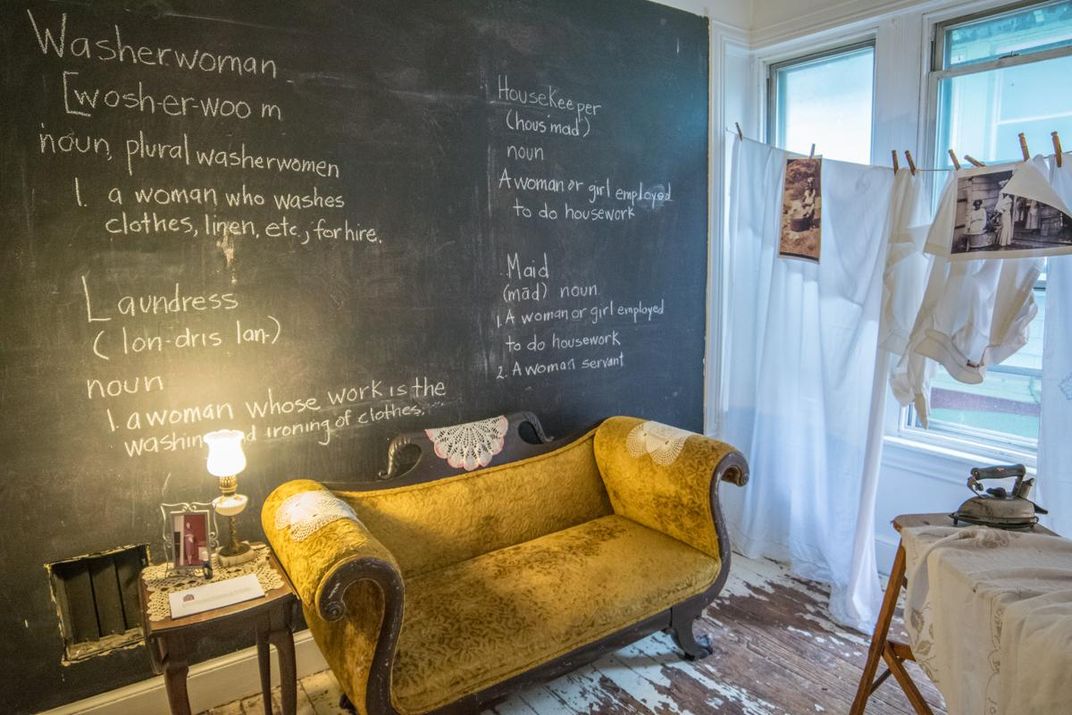
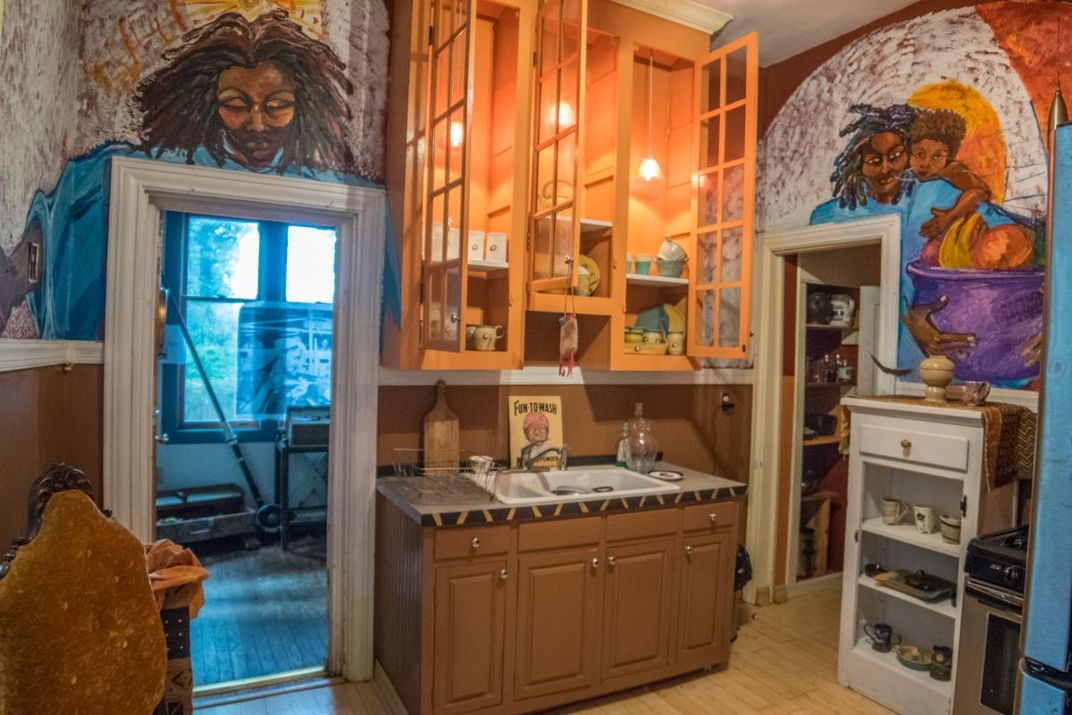
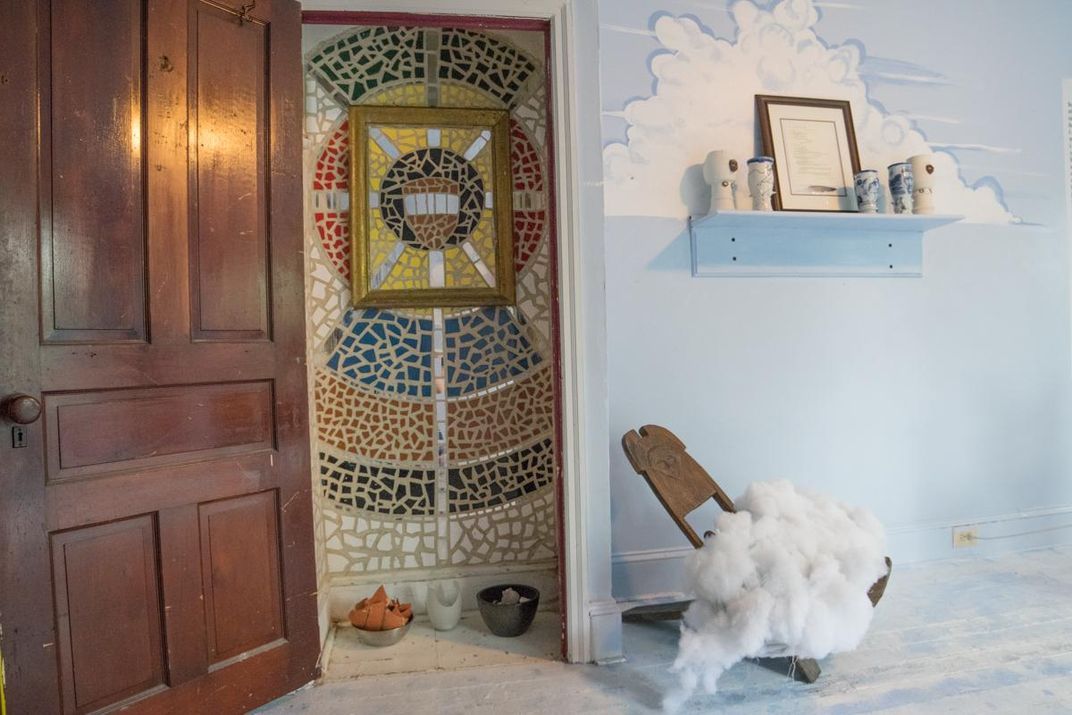
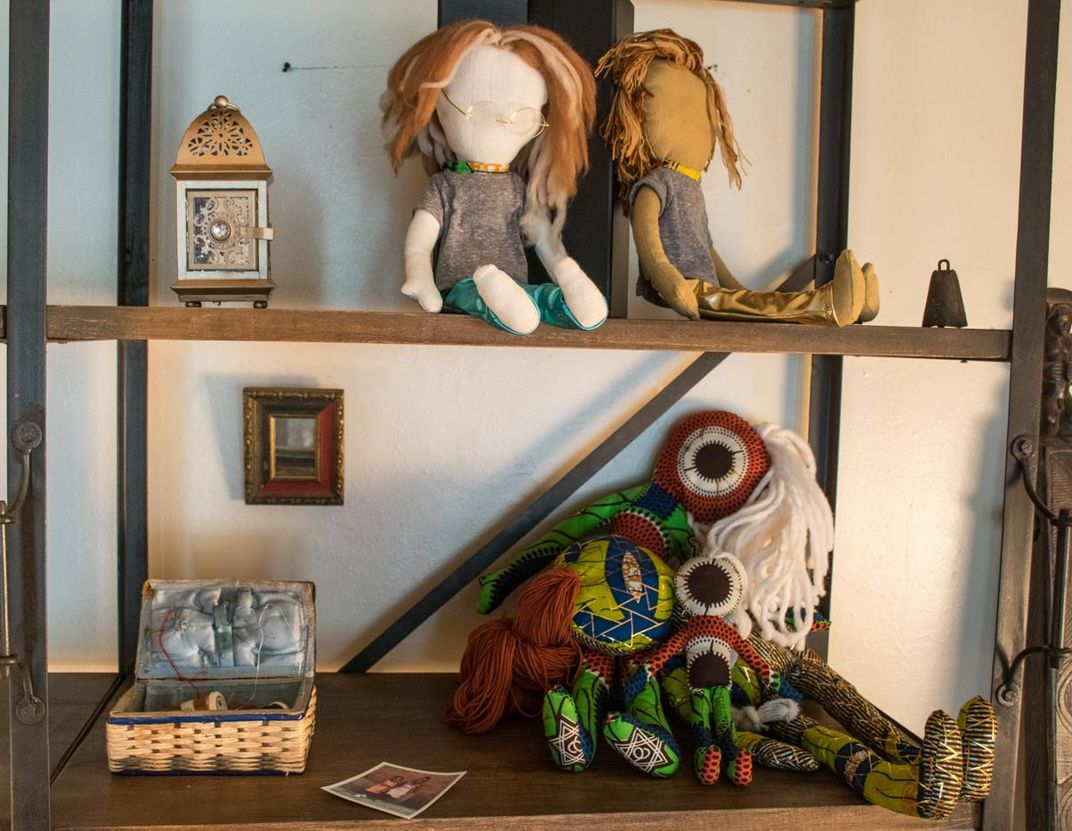
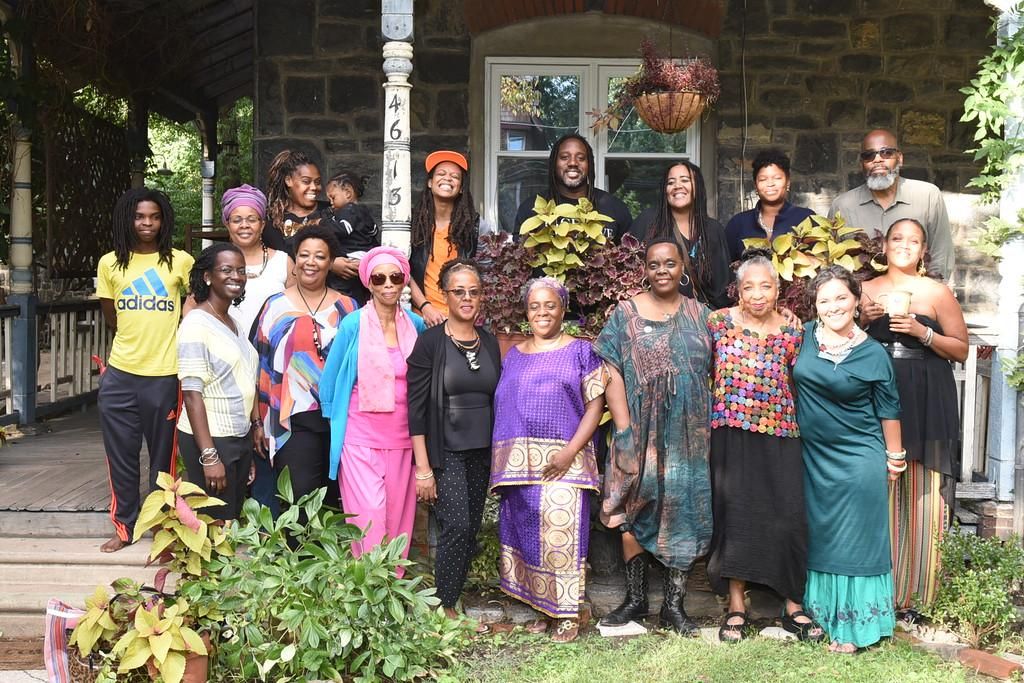
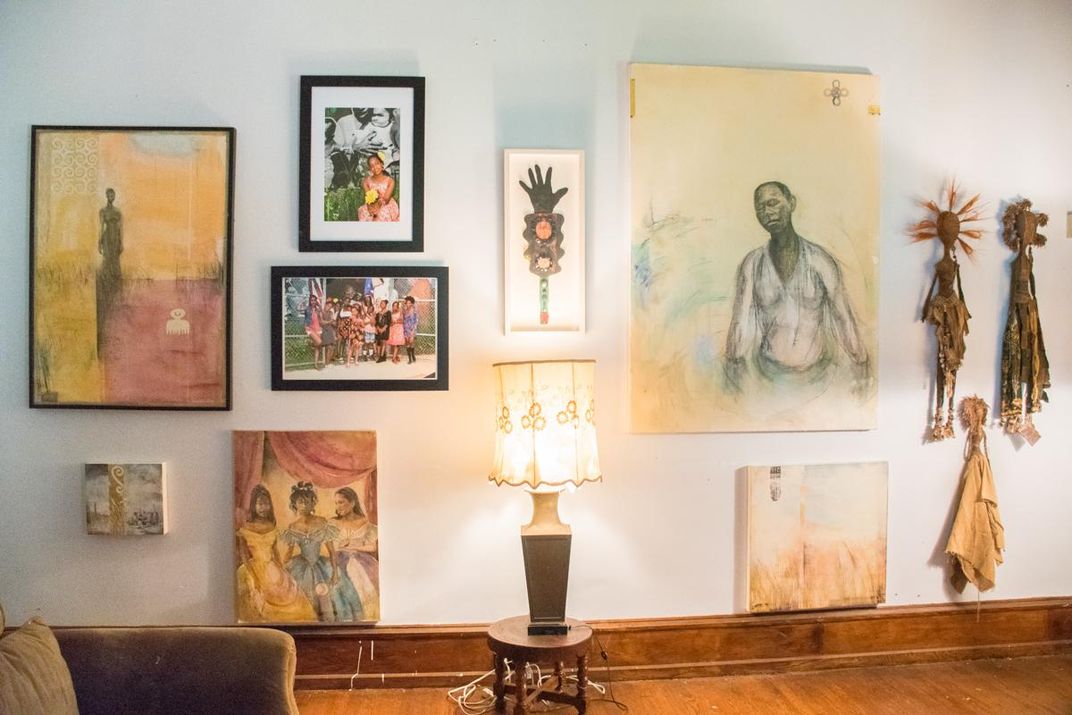
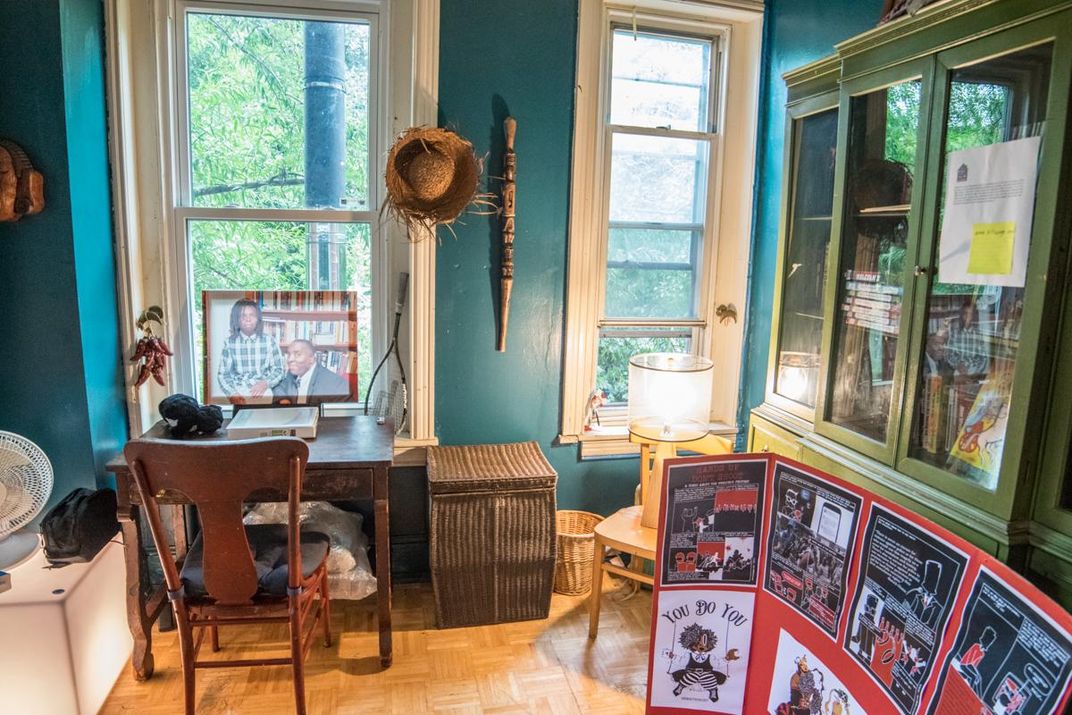
/https://tf-cmsv2-smithsonianmag-media.s3.amazonaws.com/accounts/headshot/DSC_0196_2.JPG)